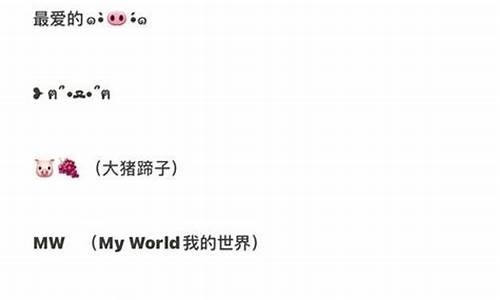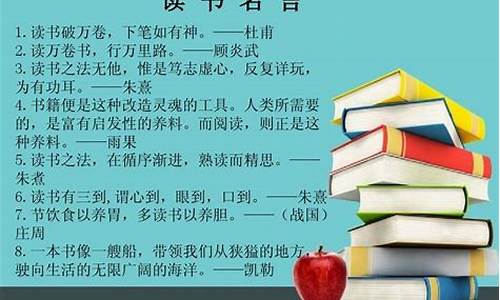按照要求完成句子英语_按要求完成的英文
1.listen twenty two
2.一般过去时疑问句
3.4.()按要求完成句子练习(1)我是亲友之间交往的礼品,我是婚礼

作为一名为他人授业解惑的教育工作者,有必要进行细致的教案准备工作,教案是教学活动的依据,有着重要的地位。来参考自己需要的教案吧!以下是我整理的九年级的英语教案,希望对大家有所帮助。
九年级英语教案 篇1UNITS 5-6
基础知识巩固
I 词组
1)belong to 属于
2)make up 形成;组成;构成
3)use up 用完;用光;耗尽
4)turn off 关掉
5)on display 展览;陈列
6)suit sb. (fine) (很)合某人的意;对某人(很)合适
7)to be honest 老实说;说实在的
8)be bad for 对……有害
9)stay awayfrom与……保持距离
10)be in agreement 意见一致
II 句型
1 It must belong to Carla. 它一定属于Carla.
同义句:It must __________ __________.
2 It’s crucial that I study for it because it makes up 30% of the final exam. 我复习准备这次考试很重要,因为它占期末考试成绩的30%
本句含有主语从句,请把它放在句首改写:
_________________________ is crucial because …….
3 There must be something visiting the homes in our neighborhood. 一定有什么东西光顾我们的左邻右舍。
同义句:Something must ______ _______ the homes in our neighborhood.
提示: there be sth. doing… = Sth. be doing …..
例如:There is a boy playing outside. = A boy is playing outside.
4 I listened to one called Heart Strings. 我听了一首名为《心弦》的歌曲。
called Heart Strings.过去分词短语做定语。
过去分词短语作定语,可以在前面加上关系代词,分词前加上be, 即可构成含有定语从句的复合句。请尝试把本句改为复合句:
I listened to one ______ _______ called Heart Strings.
注:这样便于理解为什么用过去分词:表示被动含义。
拓展:请分析这两句话:它们的意思一样吗?
1) Do you know the boy ( who is) calling Tom?
2) Do you know the boy (who is) called Tom?
5 Whatever you do, don’t miss the exhibition. 无论你干什么,都不要错过这次展览。
whatever you do = ______ _______ _______ you do
6 I like groups that wear really cool clothes. 我喜欢穿的`很酷的组合。
本句含有定语从句,关系代词that做从句的主语。请思考:为什么wear不加-s ?
练习
I基础知识
1 用情态动词must, may , might, could, can’t填空
1)The dictionary _______ be mine. It has my name on it.
2)The CD _________ belong to Tony because he likes listening to pop music.
3)The hair band ________ be Bob’s. After all, he is boy!
2 选择正确单词填空。
during, ointment, anxious, attempt, might,
too many, symphony, crucial
1)The prisoners ______________ to escape, but failed.
2)I he an _______________ at 3 p.m.
3)There are extra trains to the seaside _________ the summer.
4)I’m very __________ about my son’s health.
5)There would be _______ people in the _________ hall.
6)Getting this contract is __________ to the future of our company.
7)If you he any idea where it _________ be, please call me.
3 按照要求写句子。
1)Albert found the key. I lost the key yesterday.(合成一句)
___________________________________________________
2) Where is the beautiful picture? You bought it last week.(合成一句)
___________________________________________________
3) She was ill, but she still went on working.(同义句)
________ she was ill, she still went on working.
4) I think that it is important to master a foreign language. (同义句)
I think ______ ______ _______ ______ a foreign language.
5) Mother didn’t do the work for her little son, but taught him how to do it. (同义句)
Instead of _______ ________ ________ for her little son, she taught him how to do it.
4 完成句子。
1) Tom在这场篮球赛中表现出色。
Tom _________________ in this basketball match.
2) 她喜欢能够一起舞起来的快歌。
She likes music _______________________.
3) 王叔叔教我们如何修自行车。
Uncle Wang teaches us _______________________.
4) 这幢建筑使我想起了我的母校。
This building __________________________.
5)这顶帽子非常适合您,女士!
This hat _____________________, madam!
II 中考链接
1 选择
1) I prefer watching TV to _________ music every day.
A. listen to B. listen C. listening to D. listening
2) Do you know what ________________?
A. his fourite song is B. is his fourite song
C. his fourite song D. his most fourite song is
3) Mary sings English songs well and ____________.
A. Jane does too B. either does Joes
C. so Janes does D. so does Jane
4)What do you think of the football match?
A. How do you think of B. How do you like
C. What do you think D. What do you like
5)This question is _________ easy, all the students can answer it.
A. too much B. too many C. much too D. many too
6)He _____ would do great thins should not attempt them all alone.
A. whom B. who C. whose D. which
2 句型转换(同义句)。
1) The bench was so long that all of us were able to sit on it.
The bench was long enough _______ all of us _______ _______ _______.
2) Mary spent three thousand yuan on the color TV set.
The color TV set _______ ________ three thousand yuan.
3) I don’t know either Russian or French.
I know _________ Russian __________ French.
4) The mother told her son, “Don’t read in the bed.”
The mother ________ her son ________ ________ read in the bed.
5) They prefer this kind of fruit to that kind.
They like this kind of fruit _________ __________ that kind.
6) I didn’t know how I could repair the bike.
I didn’t know ________ ________ repair the bike.
九年级英语教案 篇2Unit1SmileandSayHello
一、教学内容:
Unit1SmileandSayHello
二、教学目标
知识目标:熟练掌握本单元课文中的单词,短语和句型。
能力目标:培养学生的综合运用知识的能力。
三、教学难点:
培养学生的综合能力
四、本单元重点知识:
单词:本单元所有单词(单词表中)
短语:
1.takeplace发生
2.liveupstairs住楼上
3.beafraidof害怕……
4.keepsb.fromdoingsth.阻止某人做某事
5.openone’sheart敞开心扉
6.theanswerstothesequestions问题的答案
7.walkwithhisheaddown低头走路
8.lookawayfromothers把视线从别人身上移走
9.pretendtodosth装做某事
10.doone’sbesttodosth.竭尽全力做某事
11.withasmile微笑着
12.smileatsb.冲某人微笑
13.thewindowoftheheart心灵之窗
14.raiseyourhead抬起头
15.aslongas只要
16.aswellas还,而且
17.giveyourwarmhandstothem向他们伸出温暖之手
18.goodlucktoyou祝你好运
19.lookintosb.正视,直视某人
20.heagoodtime过得愉快
21.BeijingForeignLanguageSchool北京外国语学校
重点句型:
1.BoththespeakersarestudyinghistoryattheUniversityofCalifornia.两位演讲者在加州大学学习历史。
2.AnnRoylorworksforachildren’smagazineandsheisinterestedinchildeducation.
安为儿童杂志工作并且她对儿童教育感兴趣。
3.Excuseme,isthisseattaken?打扰一下,请问这里有人坐吗?
4.Niceday,isn’tit?好天气,不是吗?
5.ButIdoknowthatitisdifficultforustofindapersontobeajoyfulorpeacefulone
但是我的确知道我们很难发现一个人是快乐或平静。
6.Iamnottellingyoutospendtoomuchenergymakingothershyorpretendtobefriendly.
我并没让你花太多的精力去使别人快乐,或是装友好。
7.Youshouldtreatthemnotonlywithkindnessandrespect,butalsowithasmileandeyecontact.你就不仅应该以友善和尊重对待他们,而且要有微笑和视觉的接触。
8.Whenyousmileataperson,youaredoingyourbesttoshowyourkindnesstohim.
当你对某人微笑时,你在尽自己最大的努力向他表示你的友善。
9.Theeyesarethewindowoftheheart?眼睛是心灵之窗吗?
10.Let’smakefriends,shallwe?让我们交个朋友,好吗?
11.Itmayseemhardtodotheseatfirst.也许一开始做这些有点.难。
12.Aslongasyoutryit,youwillfindsomenicechangesinyourself.
但只要你努力去尝试,你就会发现自身会产生一些可喜的变化。
13.Whenyougiveyourwarmhandstothem,you’llfindhowfriendlyandthankfultheyare.
当你向他们伸出温暖之手时,你会发现他们是多么的友好和怀有感激之情。
14.Youmayfeelyoudon’tknowwhattosaywhenyoufirstmeetpeople.
也许你会有这样的感觉:当你第一次和别人见面时不知道说些什么。
15.It’seasytotalkabouttheweather,yourpets,yourschoollessons,andespeciallyyourhobbies.
很简单,说说天气,你的宠物,你学校的课程,特别是你的爱好。
16.Remembertobeagoodtalkeraswellasagoodlistener.
要记住当一个好的说话者的同时也要当一个好的聆听者。
17.Goodlucktoyouandheagoodtimewithyournewfriends!
祝你好运!也祝你和你的新朋友在一起开开心心的。
五、重点知识讲解:
1.Doyouoftennoticethatmanyofushelittleeyecontactwithstrangers?Areweafraidofthem?Whatkeepsusfromopeningourheartstostrangers?
译文:你注意到我们当中的许多人很少与陌生人有眼光交流吗?是我们害怕他们吗?是什么阻止我们向陌生人敞开心扉?
知识点:
1)manyofus我们当中的许多人
2)helittleeyecontactwith与……有一点点眼光的交流
contact接触,联系
例句:Whenyoutalktootherpeople,youshouldheeyecontactwiththem.
A.beincontactwith和……接触,有联系
B.beoutofcontactwith脱离接触,失去联系
C.bringintocontactwith使接触,使与……联系
D.throwincontactwith使接触,使与……联系
Eeinto(in)contactwith接触,碰上
F.hecontactwith接触到,和……有联系
G.losecontactwith和……失去联系,离开
H.makecontactwith和……接触(联系)
3)beafraidof(doing)sth.害怕……
afraid,frightened,terrifiedandfearful的区别:
四个词都有害怕的意思,但用法不同:
afraid不能作定语(其它三个词都可以作定语),它多用于对某一事物经常或一贯的惧怕,泛指一种“恐惧心理”,如:
I’mafraidofadog.我怕狗。
frightened指一种“强烈的、突然的恐惧”,其经历时间较短,如:
Hewasfrightenedoutoflife.他吓得要命。
terrified指感受到“很强烈的、突如其来的恐惧”,如:
Theterrifiedchildrenranhome.受惊吓的孩子跑回家去。
fearful指“担心可能发生的结果”,如:
Shewasfearfuloffalling.她怕摔倒。
4)keepsb.fromdoingsth.阻止某人做某事
同义词:stopsb.fromdoingsth.使……不做某事,阻止……做某事
preventsb.fromdoingsth.使……不做某事,阻止……做某事
5)openone’sheart敞开心扉
listen twenty two
原句:人类在糟蹋了地球之后,根本不会有美好的生活环境。
改为反问句:难道人类在糟蹋了地球之后,还会有美好的生活环境?
反问句就是用疑问的句式,表达肯定的观点。反问句表面看来是疑问的形式,但实际上表达的是肯定的意思,答案就在问句之中。
陈述句改为反问句的方法:
1、将肯定句中的肯定词(是、能、会等)改为否定词(不是、不能、不会等)。
2、将否定句中的否定词(不是、不能、不会等)改为肯定词(是、能、会等)。
3、在肯定词或否定词前面加上“怎、怎么、难道、岂”等反问语词。
4、句尾加上疑问助词“呢、吗”等,句末的句号改为问号。
一般过去时疑问句
1. b
2. d
1. he usually works in the afternoon
1. tony doesn't he many friends
没分?哎
4.()按要求完成句子练习(1)我是亲友之间交往的礼品,我是婚礼
概念引入
英语中的句子按照句式可以分为陈述句、疑问句、祈使句和感叹句。
一、陈述句用来说明事实或说话人的看法;分为肯定句和否定句。 例如:
My name is Lily. 我的名字叫莉莉。(肯定句)
She isn’t a teacher. 她不是一个老师。(否定句)
二、祈使句用来表示请求、命令、劝告和建议等。例如:
Open the door please! 请打开门。
三、感叹句用来表达强烈的感情。例如:
What a beautiful girl she is!
她真是个漂亮的女孩儿啊!
四、疑问句用来提出问题。例如:
Are you my new teacher? 你是我的新老师吗?
本节课,我们将重点讲解疑问句的用法。
用法讲解
疑问句可以分为一般疑问句、特殊疑问句、选择疑问句和附加疑问句。本册书中我们重点学习的是一般疑问句和特殊疑问句。
1. 一般疑问句。
(1) 什么是一般疑问句?
可以用Yes或者No来回答的疑问句是一般疑问句。一般疑问句读的时候往往要用升调;译成汉语的时候常可以译为“……吗?”。例如:
-Are you a student? 你是个学生吗?
-Yes, I am. 是的,我是。
-Can you speak English? 你会说英语吗?
-Yes, I can. 是的,我会。
-Do you go to school every day? 你每天都上学吗?
-No, I don’t. 不,不是。
(2)如何将陈述句变成一般疑问句?
① 句中有be动词(am,is, are,was, were等)、助动词(do,does,did, he, had等)或情态动词(can,must,will,may等)时,将其提到句首,句末加上问号即可。例如:
he is a clever girl. 她是个聪明的女孩。
→Is she a clever girl? 她是个聪明的女孩吗?
I can swim. 我会游泳。
→Can you swim? 你会游泳吗?
② 如果句中没有be动词、助动词或情态动词,则要根据不同的时态在句首加上相应的助动词来构成一般疑问句。例如,我们目前学过的一般现在时,当句子的谓语动词是行为动词时,把句子变成一般疑问句就要在句首加上助动词do或者does提问。主语是第三人称单数时用does,其余人称用do。此时句子的谓语动词要用原形。例如:
He likes reading books. 他喜欢读书。
→Does he like reading books? 他喜欢读书吗?
I do my homework every day. 我每天做作业。
→Do you do your homework every day? 你每天都做作业吗?
注意:在把陈述句变成一般疑问句时,除了以上的变化外,还要注意一些相应的词的变化,例如人称的变化,或者把 some变成any等。例如:
She has some bread for breakfast. 她早餐吃了些面包。
→Does she he any bread for breakfast? 她早餐吃了些面包吗?
I am a student. 我是个学生。
→Are you a student? 你是个学生吗?
I do my homework every day. 我每天做作业。
→Do you do your homework every day? 你每天都做作业吗?
2. 特殊疑问句。
(1)什么是特殊疑问句?
特殊疑问句是以特殊疑问词开头,用来询问具体的某一方面信息的疑问句。特殊疑问句中常见的特殊疑问词有:what(什么),who(谁),where(哪里), when(何时),why(为什么),how(如何)等。特殊疑问句在回答的时候,不可以用Yes 或者No,必须回答具体的内容。例如:
-What’s his name? 他叫什么名字?
-His name is Tom. 他的名字是汤姆。
-Who is the girl? 那个女孩儿是谁?
-She’s my sister. 她是我的姐姐。
-Why were you late for school? 你为什么又迟到了?
-Because I got up late. 因为我起晚了。
-Whose book is this? 这是谁的书?
-It’s mine. 这是我的书。
-Which color do you like? 你喜欢哪个颜色?
-I like red. 我喜欢红色。
(2)如何将陈述句变为特殊疑问句?
当我们对一个陈述句中的某一项内容进行提问时,就构成一个特殊疑问句。此时首先要确定用哪一个疑问词,然后将原来的句子变为一般疑问句放在疑问词的后面,把句号变为问号。
① 果对主语或修饰主语的词提问其语序是陈述句的语序:“特殊疑问词(+名词)+谓语动词+...?”。例如:
It’s me. (对划线部分提问)
→Who is it?
This is my bike. (对划线部分提问)
→ Whose bike is this?
②如果对其他成分提问,其语序是:"特殊疑问词+一般疑问句"。例如:
She looks like her mother. (对划线部分提问)
→Who does she look like?
I’m from England. (对划线部分提问)
→Where are you from?
(3)常见的特殊疑问词的用法。
① 特殊疑问词What的相关用法。
What可以用来 询问姓名、年龄、事物、职业和数学计算结果等。例如:
What’s your name? 你叫什么名字?
What’s your age?=How old are you? 你多大了?
What is two plus four? 二加四是多少?
询问几点几分用What time(询问什么时候用When)、询问星期几用What day,询问日期用What’s the date?例如:
What day is it today? 今天是星期几?
What time is it now? 现在是几点了?
What’s the date today? 今天是几号?
What about可以用来征求别人的意见和建议,等于How about。例如:
What about going fishing after school? 放学后去钓鱼如何?
What class/grade可以用来 询问在哪一个班或者年级,此时也可以用Which class/grade。例如:
-What class are you in? 你在哪一个班级?
-I am in Class Two, Grade One. 我在一年级二班。
询问是什么颜色用What color。例如:
-What color is your bike? 你的自行车是什么颜色?
-It’s black. 是黑色的。
②其他特殊疑问词的用法。
询问某人是谁用Who,询问某物是谁的用Whose。例如:
-Who is your teacher? 谁是你的老师?
-The man in black coat. 穿黑色大衣的那个男人。
-Whose bike is this? 这是谁的自行车?
-It’s my father’s. 它是我爸爸的。
询问哪一个用Which。例如:
Which color do you like? 你喜欢哪个颜色?
询问地点用Where。例如:
Where is your book? 你的书在哪里?
询问原因用Why。例如:
Why are you late again? 你为什么又迟到了?
询问方式、状况或者程度等可以用How。
例如:How can I get to the station? 我怎样能到车站?
询问某物的价格和价钱用How much。
例如:How much is your bike? 你的自行车多少钱?
How much are these les? 这些苹果多少钱?
注意:询问某物有多少可以用How many和How much。How many的后面用可数名词的复数形式,How much的后面用不可数名词。例如:
How many people are there in your family? 你家有多少口人?
How much water is there in the bottle? 瓶子里有多少水?
How的相关词组还有很多,我们在以后的学习中要进一步积累。
巩固练习
Ⅰ.单项选择。
1.-_____ is your dictionary?
- 10 Yuan.
A. How much
B. How many
C. What
D. Whose
2.-_______ subjects do you he ?
- Seven.
A. How long
B. How many
C. How much
D. How far
3.-_______ do you like best?
- I like math best.
A. Which subject
B. What food
C. What color
D.Which sport
4. - ________ do you like science?
-________it’s interesting.
A. Why; So
B. What; Because
C. Why; Because
D. How; Because
5. When _______the girl ________ her homework?
A. does; does
B. does; do
C. do; does
D. do; do
6. —Does he want to go to a movie?
— _______.
A. Yes, he does
B. No, he does
C. Yes, he doesn’t
D. Yes, she is
7. -_______ kind of movies do you like?
- I like comedies very much.
A. What’s
B. How
C. What
D. Why
8. - ______ are these bananas?
- Five dollars.
A. What color
B. How about
C. How much
D. How many
9. -Can we play football in the street?
-No, you _____. It’s dangerous.
A. can
B. mustn’t
C. may
D. may not
10. -_____ does he play football?
- In the afternoon.
A. When
B. Where
C. How
D. What
真题链接
1. —_____ is your father? Does he still work as an engineer?
—Yes, he has been an engineer for thirty years.
A. Who
B. How
C. What
D. Which
2.—_____ does your father go to the fitness center?
—He exercises there twice a week.
A. How soon
B. How often
C. How long
3.—_________will the invitations be sent to our guests?
—In three days.
A. How often
B. How soon
C. How long
D. How far
4.—_____ is it from the New Town to the old city centre?
—Less than 30 minutes by underground.
A. How soon
B. How often
C. How long
D. How far
Ⅱ. 按要求完成句子。
1. His forite subject is art.(就划线部分提问)
_______ _______ his forite subject?
2. They like broccoli. (改为一般疑问句)
________ they ________ broccoli?
3. I like thrillers because it’s scary. (就划线部分提问)
________ ________ ________ ________ thrillers?
4. My book is on the sofa.(一般疑问句并回答)
-________ ________ book on the sofa?
-Yes, ______ is. / No, it _______.
5. His sister likes to be a musician. (就划线部分提问)
________ ________ to be a musician?
6. He does his homework after school every day. (改为一般疑问句)
_______he _______ his homework after school every day?
7. John has P.E. on Monday. (就划线部分提问)
________ ________ John he P.E.?
8. Mrs. Yang works in a shop. (就划线部分提问)
________ does Mrs. Yang _______?
9. They are under the bed. (一般疑问句并回答)
-_______ _______ under the bed?
-Yes, _______ _______. / No, _______ ________.
10. My father is OK. (就划线部分提问)
________ ________ your father?
11. Does she like ice cream? (作否定回答)
_________, she _________.
12. My bed is yellow. (就划线部分提问)
_______ _______ is _______ bed?
13. That’s a box. (改为一般疑问句,并作肯定回答)
-________ ________ a box?
-______, ________ ________.
14. The notebook is in the bag.(就划线部分提问)
_________ the notebook?
15. I can spell that. (改为一般疑问句)
________ ________ spell that?
参考答案
Ⅰ. 单项选择。
1. A。从对话后面的回答10 yuan可以看出是表示某物的价格,所以前面的句子是用特殊疑问词How much来询问某物的价格是多少。
2. B。从对话后面的回答和对话句子的意思判断是询问数量多少的,名词subjects是可数名词的复数形式,所以用How many来提问。
3. A。从对话后面的回答可知是提问某一种科目的,所以用特殊疑问词Which和名词subject连用来提问。
4. C。由答语可知,上文问的是“你为什么喜欢自然科学?”;因此第一个空应该填”Why”;回答“Why”的提问时用“Because”引导的句子,表示“因为”。
5. B。句意:“那个女孩什么时候做家庭作业?”;由此可知本句是对行为动词提问,因此应该加助动词;因为主语是三单,所以用助动词does;用助动词提问时, 谓语动词要还原。故本题选B。
6. A。用does 提问还要用does回答,答语前后要一致,故本题选A。
7. C。从对话后面的回答“我非常喜欢喜剧片”,可以判断对话上面的句子是 询问“你喜欢什么种类的**?”,“特殊疑问词What +kind of+名词……”用来询问“什么种类的……?”。
8. C。从本句的答语可知,是提问价格的,因此用How much。
9. B。mustn’t表示“不允许、禁止”。
10. A。从后面的回答可以判断前面是用When表示“什么时候”的意思。
真题链接
1. C。询问职业,用what。后面的回答是职业,所以选C。
2.B。由答语“twice a week”可知是问频率,所以选择how often。
3. B。in+一段时间,常用在一般将来时,对“in+一段时间”提问时,要用How soon,意为“多久”。
4. D。由题意可知问距离多远,要用how far提问。
Ⅱ. 按要求完成句子。
1. What; is 2. Do, like
3. Why, do, you, like 4. Is, your, it, isn’t
5. Who; likes 6. Does, do
7. When; does 8. Where; work
9. Are, they, they, are, they, aren’t
10. How, is 11. No, she, doesn’t
12. What, color, your
13. Is, that, Yes, it, is
14. Where’s 15. Can, you
4.()按要求完成句子练习(1)我是亲友之间交往的礼品,我是婚礼如下:
自由飞翔的鸟儿一片飘荡的云彩一阵清香的微风眼睛察看。
仿写的要求分为显性要求和隐性要求。显性要求是指命题者在题干中明确提出的要求;隐性要求是指隐含在被仿写的句子中的要求。这里主要谈谈隐性要求:
1.内容要协调一致,前后呼应。
内容协调一致,包含两层意思:一是仿句和被仿句(或称例句)的内容要有内在的联系,要能够互相搭配,互相衔接。二是仿句与被仿句的内容和精神实质要一致。(感情-色彩、正反对立关系、富有哲理性和启迪性等方面。)一定要结合被仿句的具体情况具体分析。
前后呼应是指如果被仿句前边的句子与后面的句子在语意上存在相互联系、相互对应的关系,那么仿句也要在语意上体现这种相互联系、相互呼应的关系。
2.句式要统一。
句式,即句子的结构形式。句式要统一,是指仿句与被仿句的结构要一致。这就要求孩子仿写前仔细观察。观察从整体到局部, 试题往往给出了句式,或要求与某一画线语句句式相同。这样,句式的一致就成了所造语句是否符合要求的关键。有时要仿写的是一个短语,那就要首先考虑到短语结构一致,如例句是主谓结构,仿写语句也应如此。
3.修辞要相同。
修辞要相同。是指仿句和被仿句所用的修辞方法要完全相同。仿写前要仔细审视,看被仿句用了哪种或那几种修辞方法。
4.字数要相等或大致相等。
自由飞翔的鸟儿一片飘荡的云彩一阵清香的微风眼睛察看。
结婚礼品可以是日用品,如炊具、餐具、茶具等;创意礼物比如很少看到的,礼物本身有爱的意义的;赠送新娘可以是衣料、衣物、成套化妆品,有许多化妆品都是专门为婚礼准备的,品种齐全,价格适宜。还可以为新郎新娘预约婚前的美容美发,打扮新人。
其实,馈赠礼品最重要的是一份心意。送所需所缺,最紧要的是获得一些内部信息,想办法去找张新人的所需物品单吧。
中国人什么事都图吉利,新婚礼品的选择当然也不能例外。大红被面、喜枕;成双成对的餐具、饰品;象征百年好合的百合花;可爱的娃娃送给新婚的朋友,祝她们早日有自己的小宝宝。虽然如今礼品更加趋于实用,但是按照老传统来选择礼物,可以给新婚带来不少喜庆气氛。
举行送礼会是给新娘的考虑最周到的新婚礼物之一。对女傧相或新娘朋友来说,帮助新娘开始理家既实际又令人愉快。一般来说,新郎新娘的直系亲属不参加送礼会,但送礼会可以在他们家里举行。男宾和女宾都参加的送礼会也是常见的。送礼会上备有点心,下午茶,花园里的聚餐或是备有甜食的小型聚会。
声明:本站所有文章资源内容,如无特殊说明或标注,均为采集网络资源。如若本站内容侵犯了原著者的合法权益,可联系本站删除。












